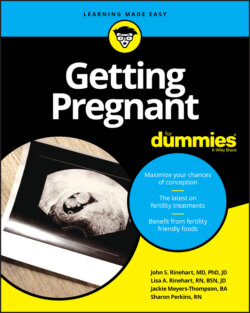Читать книгу Getting Pregnant For Dummies - Sharon Perkins - Страница 133
Losing support the second time
ОглавлениеAnother emotional dilemma of secondary infertility can be the lack of support from those who once mopped your tears. “Be thankful for the child you have,” family and friends may snap at you impatiently. It’s hard to explain that you’re immensely grateful and through the joy of conceiving, delivering, and raising your first son or daughter, you have awakened your own inner parent, one that dreams of adding to the flock.
You can’t quantify pain, particularly not that of another. Many women grieve as much for the inability to have child number 3 as others do for number 1. Dreams are highly personal and don’t generally adjust themselves too easily to life’s ups and downs. But, explaining that to family and friends who don’t understand can be as challenging as any other aspect of secondary infertility. Even “classic” forms of support, including the internet, often disregard those suffering from secondary infertility, claiming that at “least” they have a child.
Dr. R says, “I once had a patient who consulted me at age 40. She had four children but wanted to have another. I was much younger then and far smarter than now, so I found this almost inconceivable — pun intended. As so often happens, she taught me invaluable information about the desire to have children. After much discussion and negative predictions, we attempted IVF. It did not work. Again, after considerable consultation and negative predictions on my part, we did IVF again and again and again. And guess what — on that fourth try she conceived and now has child number 5. This single case report is in no way endorsing endless IVF, but it does demonstrate the medical limitation to predicting the outcome. And it emphasizes that each individual has a different drive for children. As a follow-up, she knew when she started to try for number 5 that that would be the last. And true to her plans, five was enough — she did not return for number 6. She thanked me after the delivery because she acknowledged that she knew I did not think it would work. I tried to tell her how much her willingness to work with me helped so many patients who came after her.”
You are not alone. Look for specific friends and organizations, whether online or in person, that address some of the issues of secondary infertility. You may be surprised, upon getting to know other parents in your child’s playgroup, to find that others have or are dealing with the same issues.
After a particularly painful second-trimester loss of a second child, Jackie was swinging her daughter Ava in the park one day in between two pregnant mothers (just for the record, Jackie was there first!). As Jackie quietly bemoaned her fate, feeling sorry for herself and simultaneously jealous of these strangers, she found herself eavesdropping on their conversation. One of the mothers was sharing how she was just approaching the “critical” point of her pregnancy. As she appeared to be ready to pop, Jackie was a bit confused and continued her nosy vigil. Apparently, she had prematurely delivered her last child at seven months and the baby had not made it. This woman, who Jackie saw as filled with baby and with hope, had endured an even greater tragedy than Jackie had. This is a good reminder to not measure your insides against another’s outsides.
